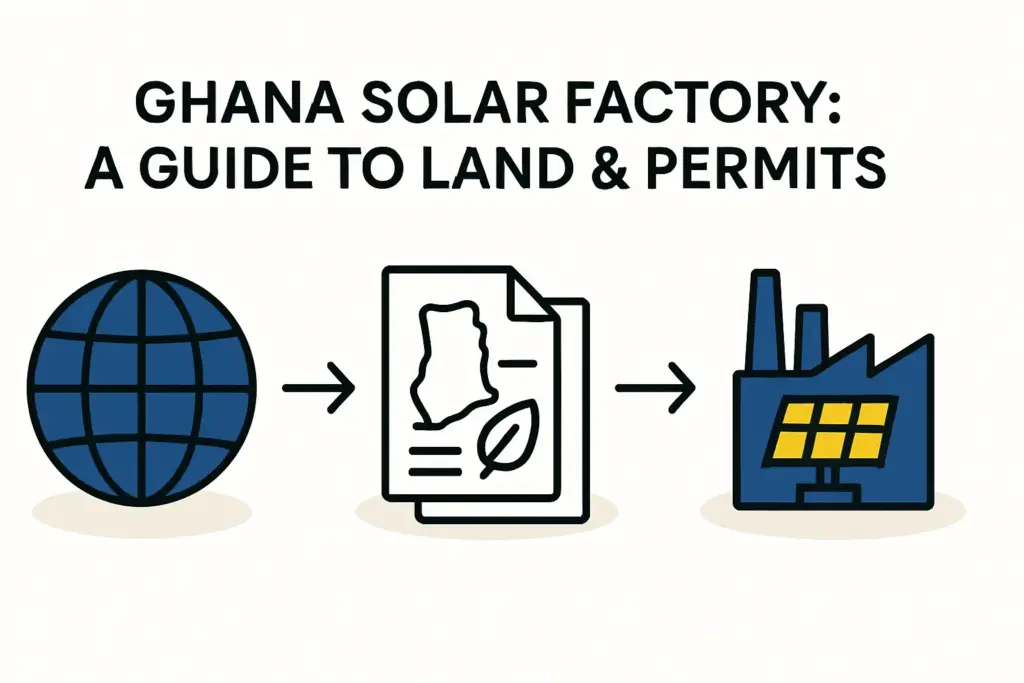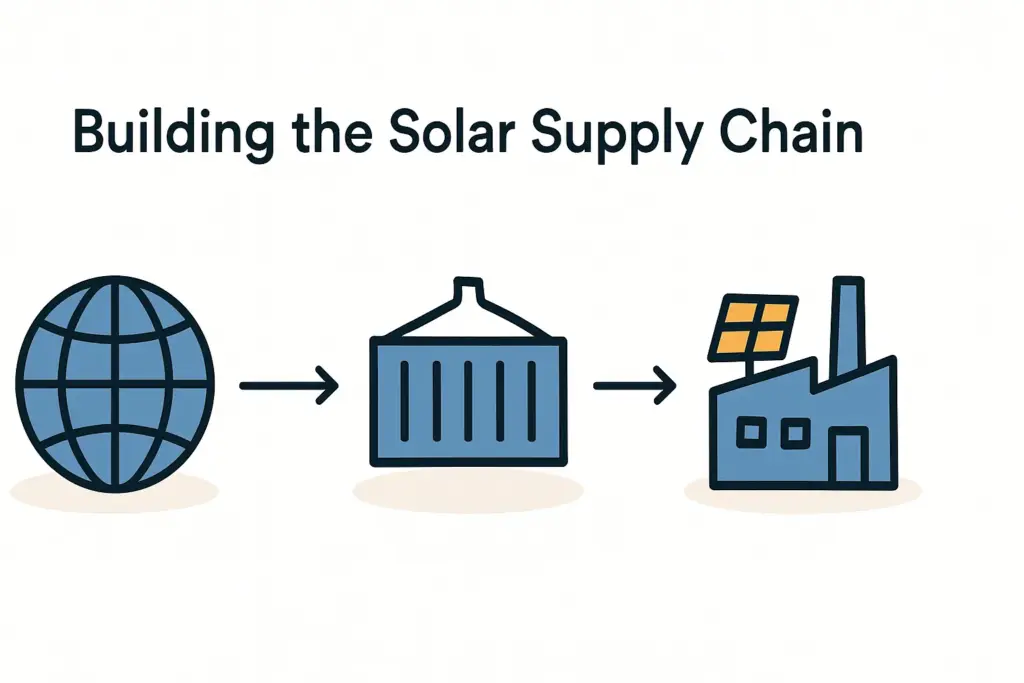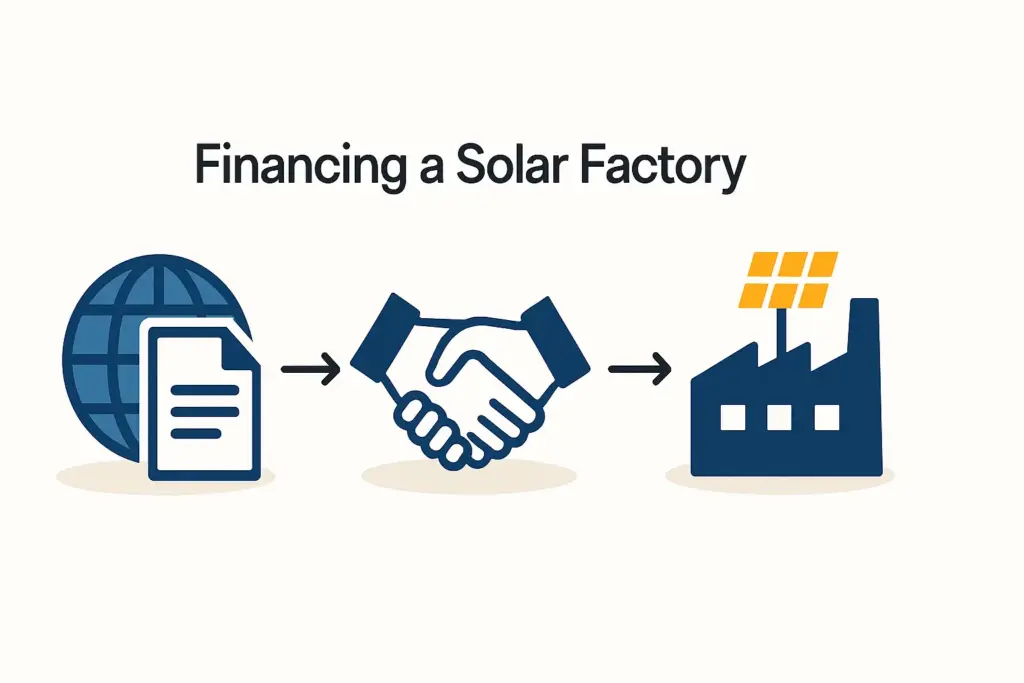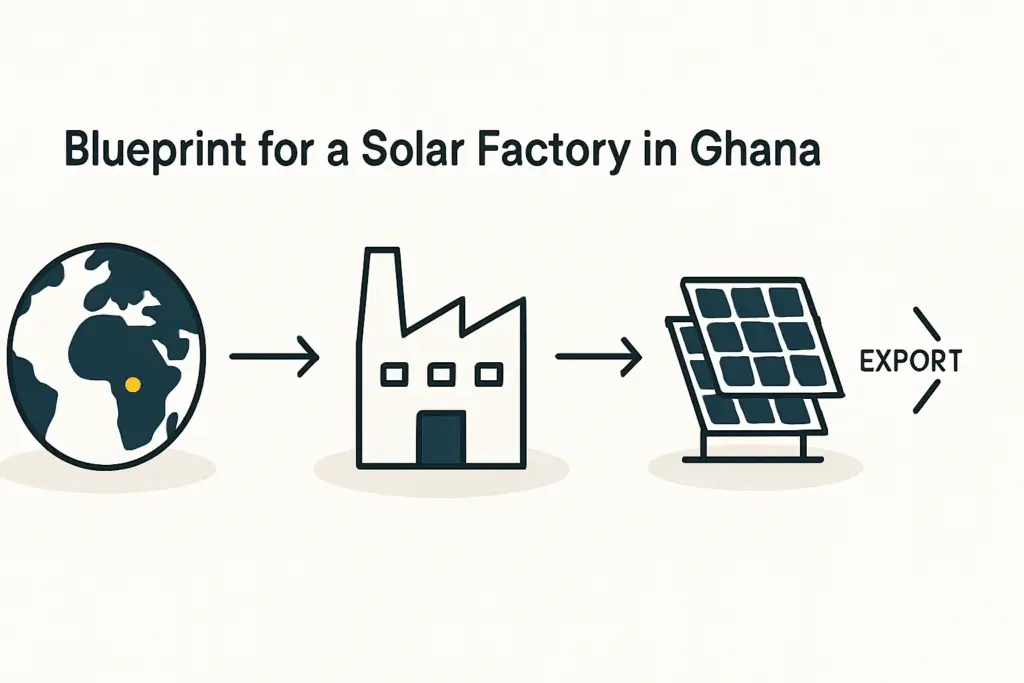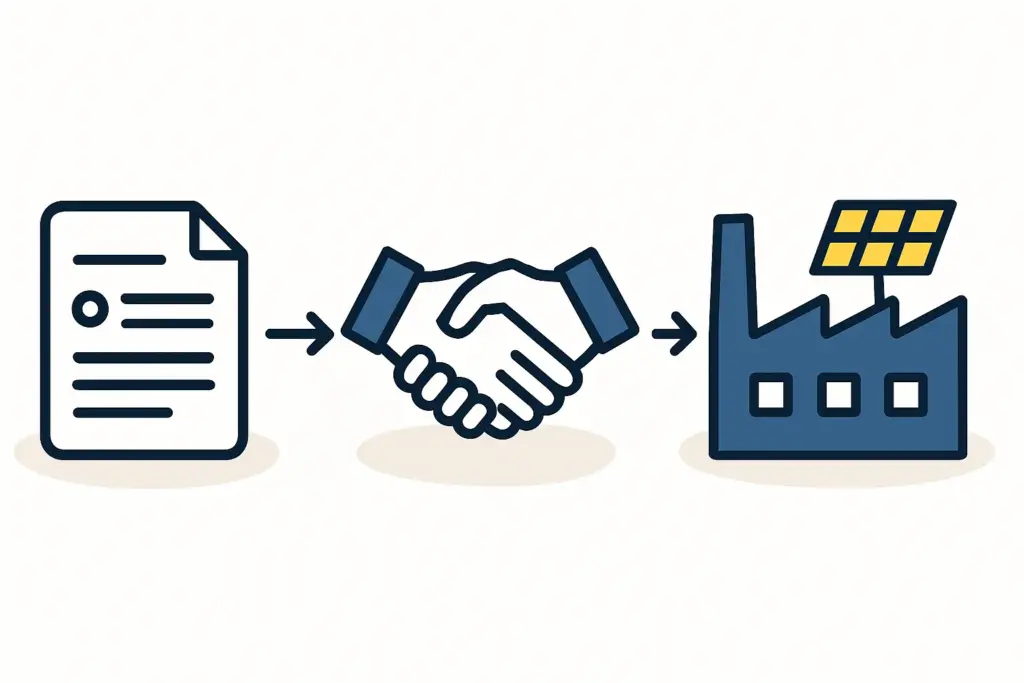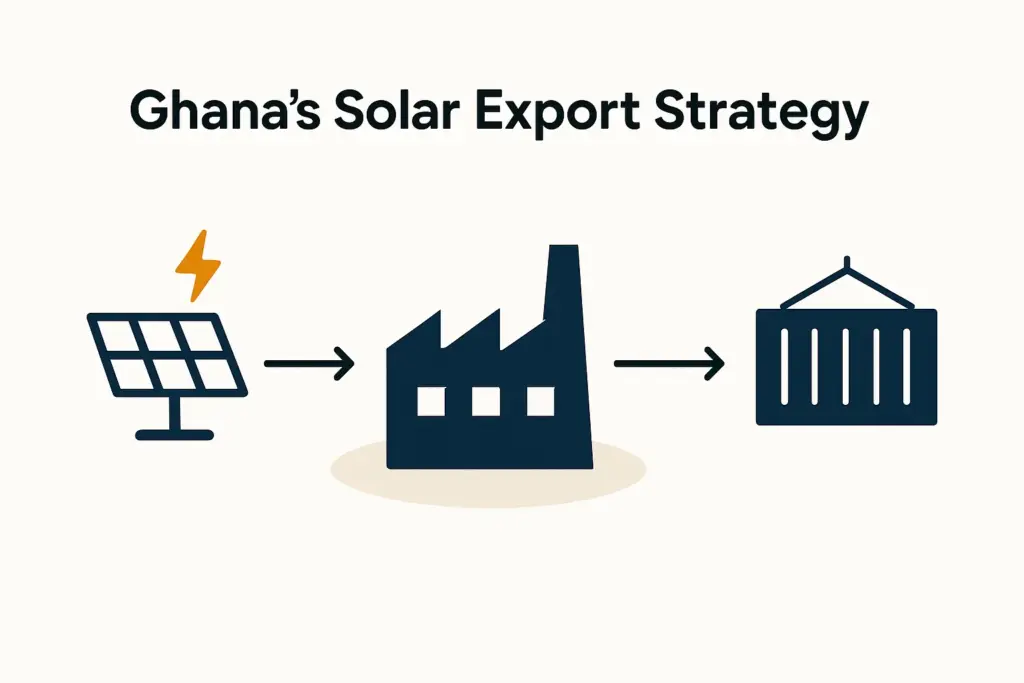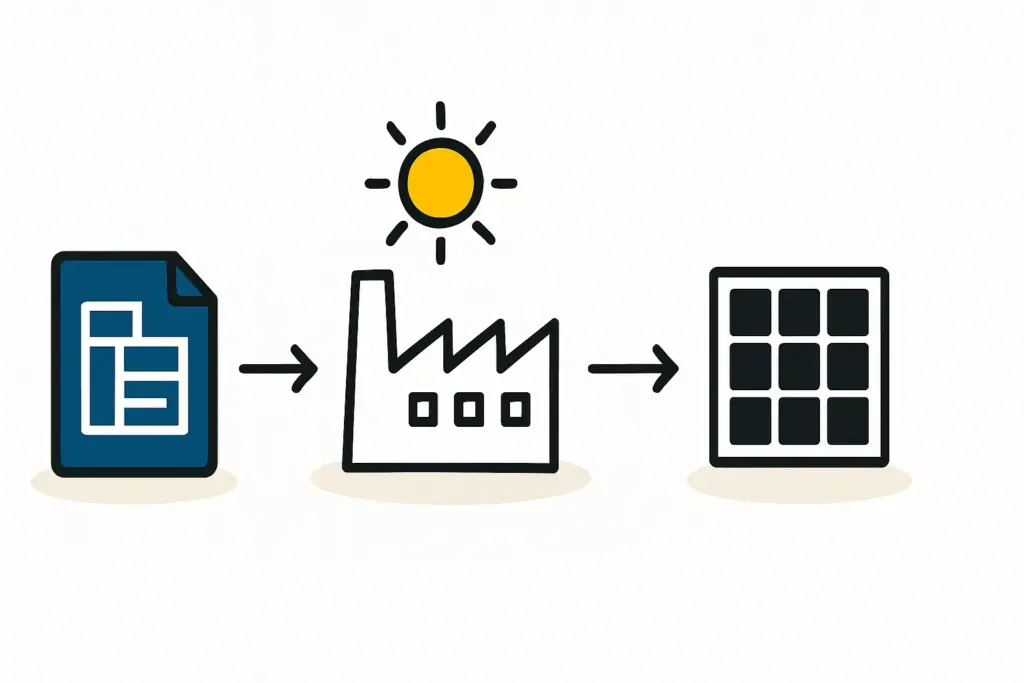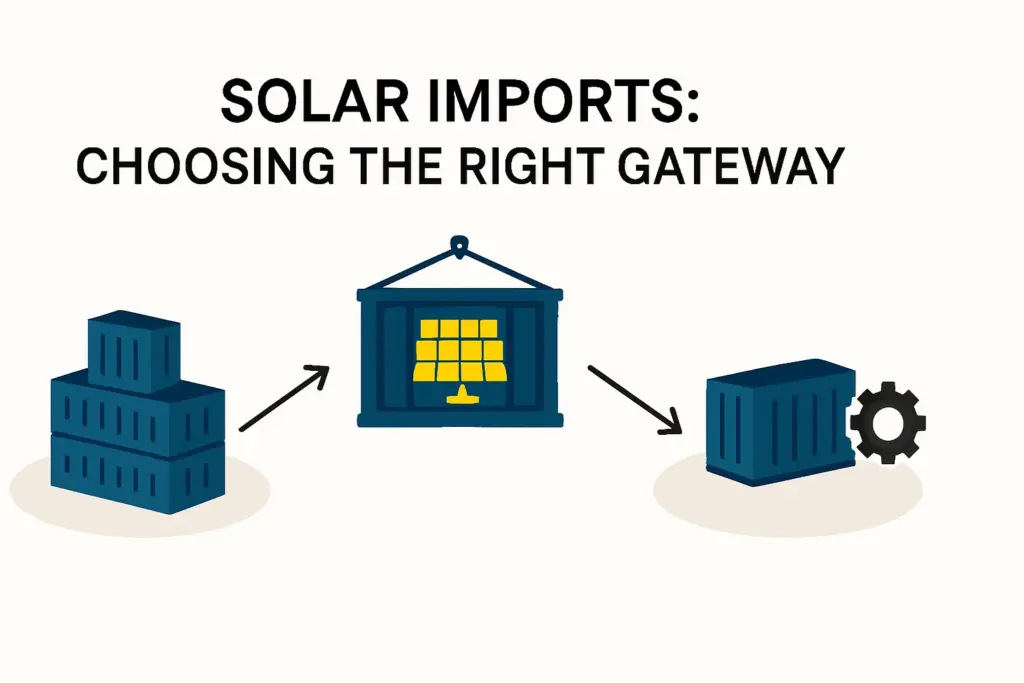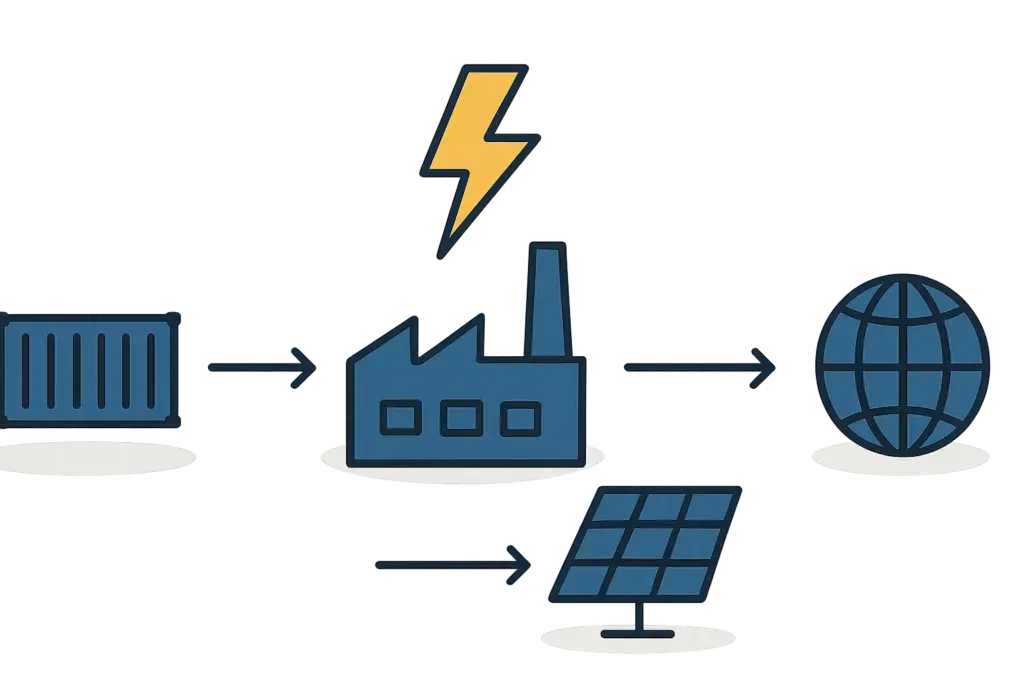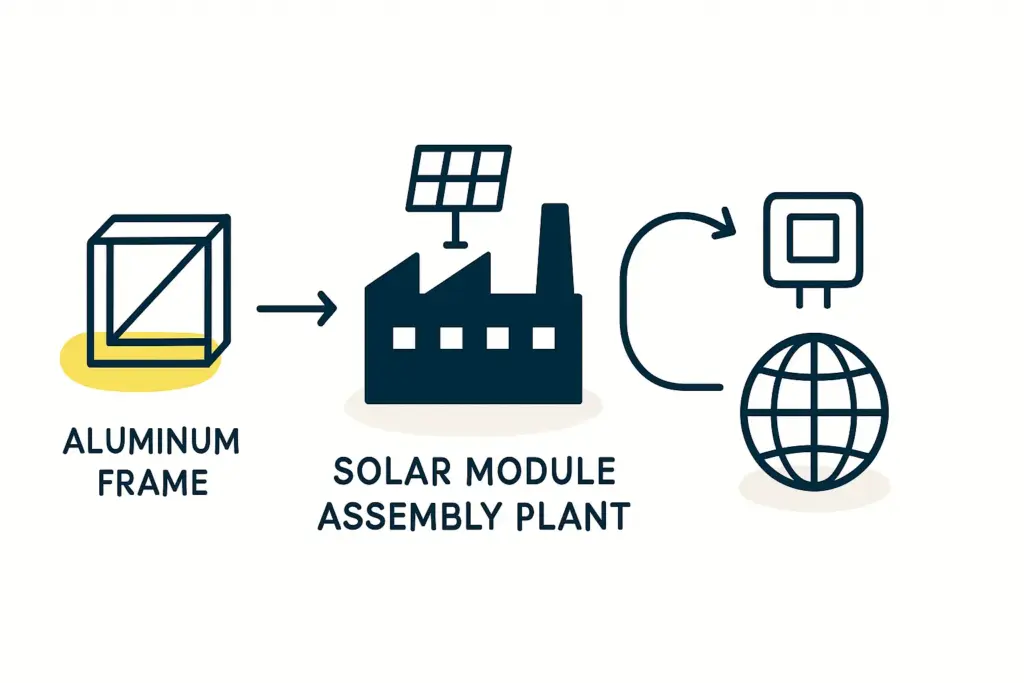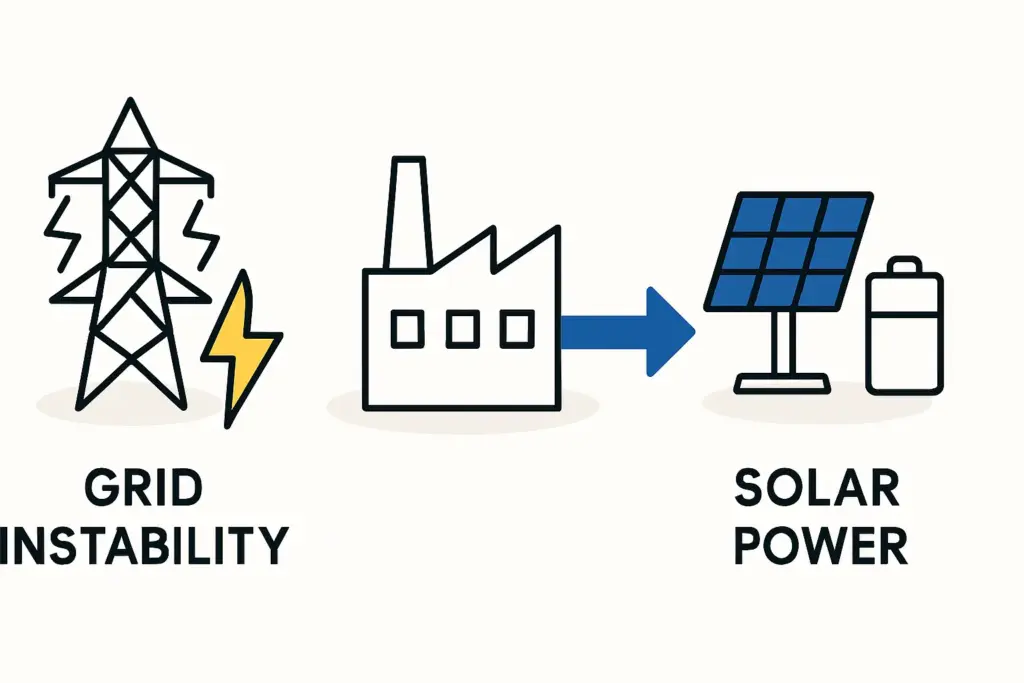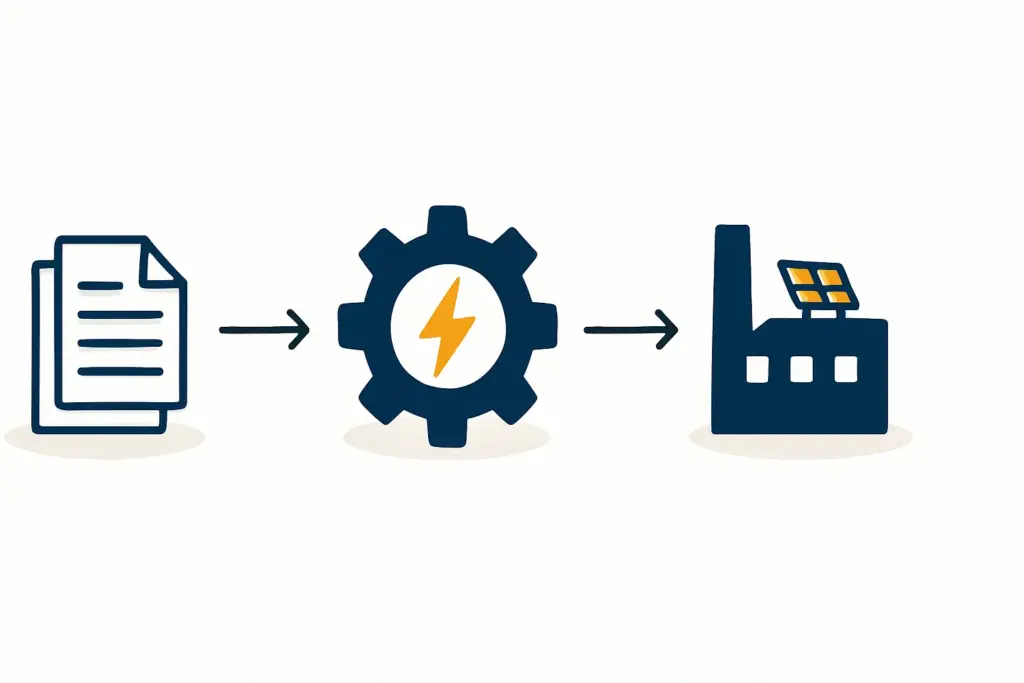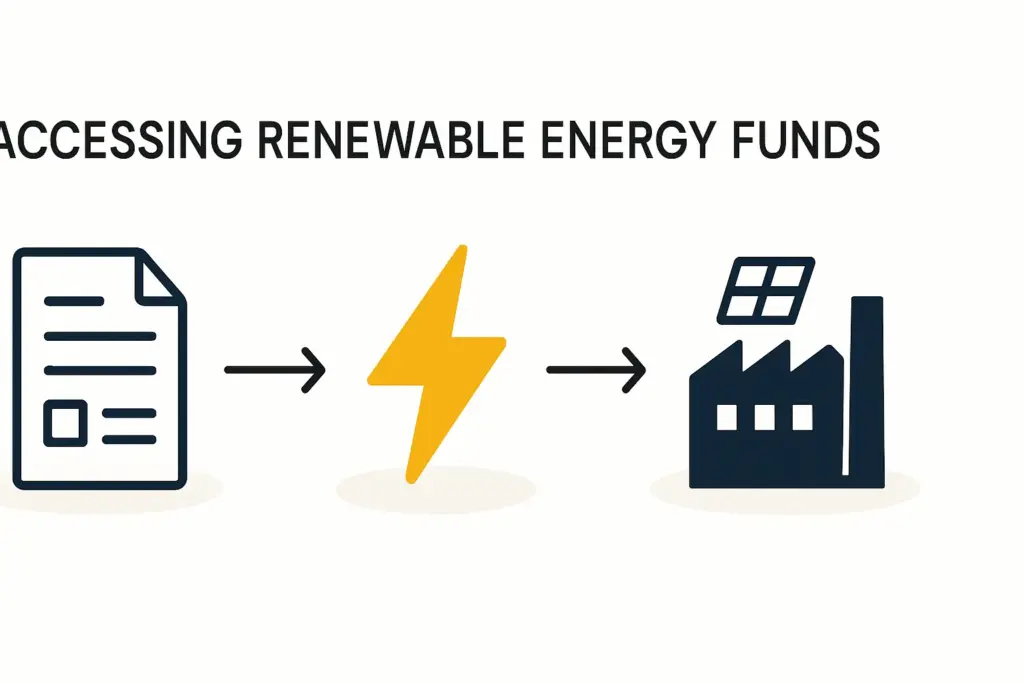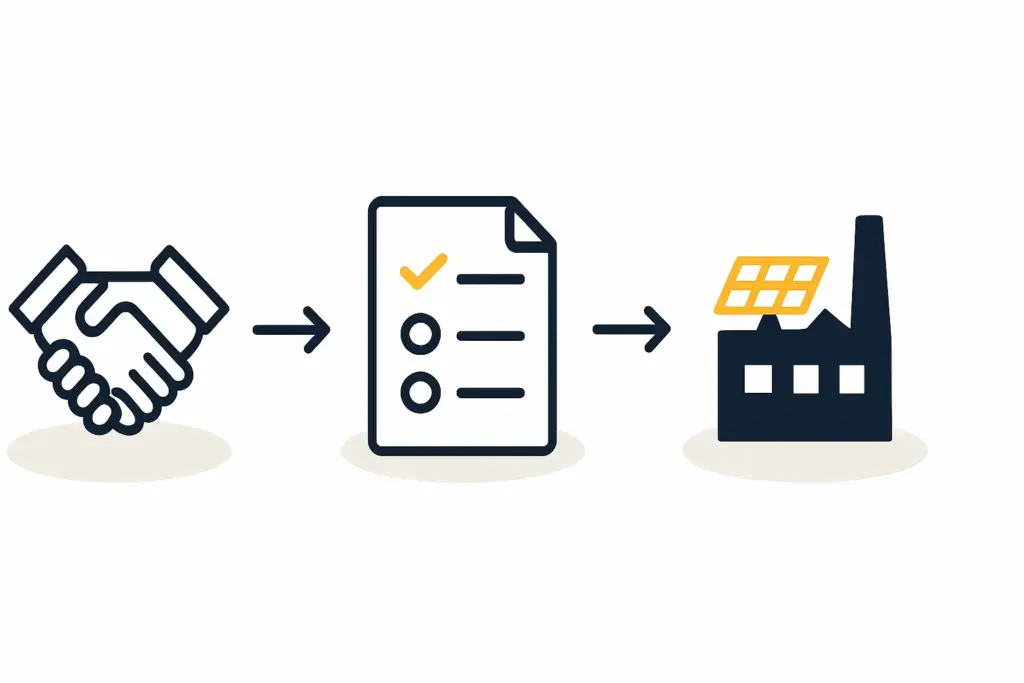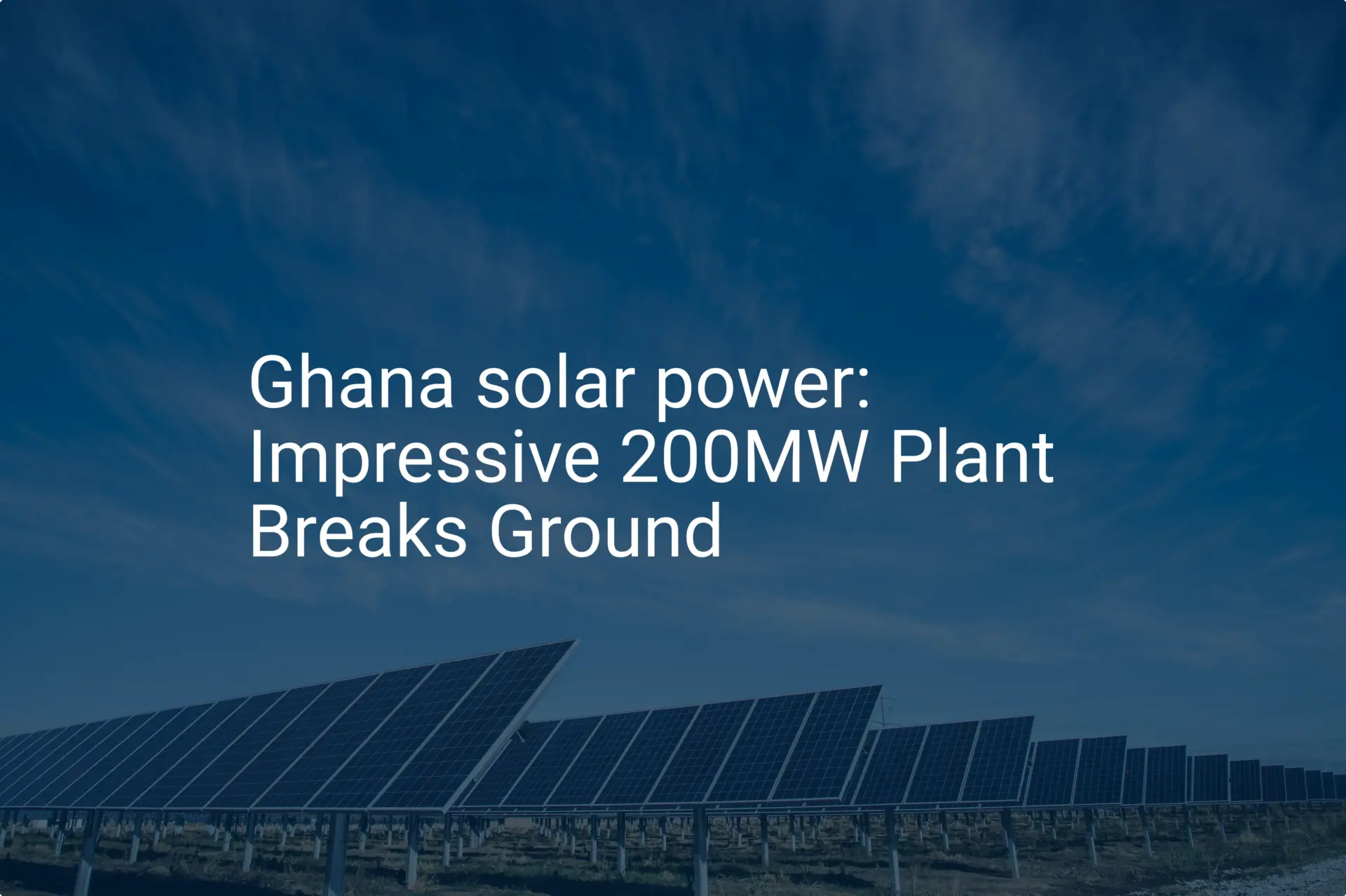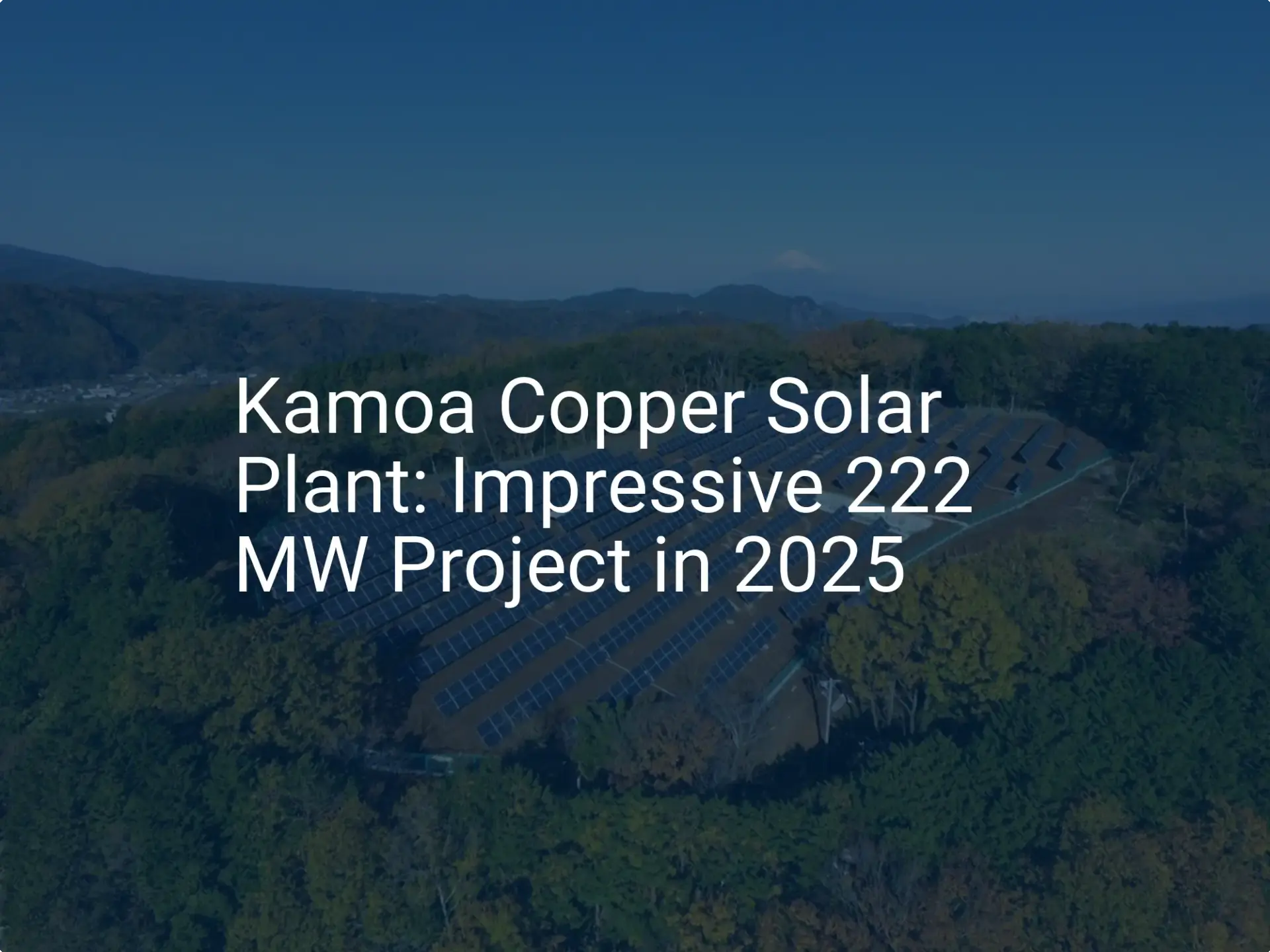Discover comprehensive insights into the statistics, market trends, and growth potential surrounding the solar panel manufacturing industry in Ghana
- “Climate in Ghana.” World Data. Accessed July 1, 2024. https://www.worlddata.info/africa/ghana/climate.php
- “Global Photovoltaic Power Potential by Country.” Global Solar Atlas. Accessed July 1, 2024. https://globalsolaratlas.info/global-pv-potential-study
- “Electricity Prices in Ghana.” GlobalPetrolPrices.com. Accessed July 1, 2024. https://www.globalpetrolprices.com/Ghana/electricity_prices/
- “Empowering Rural Communities: Ghana’s Rural Electrification Initiative.” Deep Green Power. Accessed July 1, 2024. https://deepgreen-pwr.com/2023/08/06/empowering-rural-communities-ghanas-rural-electrification-initiative/
- “Ghana – Energy and Renewables.” Trade.gov. Accessed July 1, 2024. https://www.trade.gov/country-commercial-guides/ghana-energy-and-renewables
- “2023 Energy Statistics.” Energy Commission Ghana. Accessed July 1, 2024. https://www.energycom.gov.gh/newsite/files/2023-energy-Statistics.pdf
- “Public Utilities Regulatory Commission 2023 Report.” PURC. Accessed July 1, 2024. https://www.purc.com.gh/attachment/462359-20230420090433.pdf
- “Solar Surging 58% in 2023: 413 GW of Installations Expected Globally.” PV Magazine USA. Accessed July 1, 2024. https://pv-magazine-usa.com/2023/11/28/solar-surging-58-in-2023-413-gw-of-installations-expected-globally/
- “Ghana Bui Power to Install 8 Solar Power Plants.” Africa Energy Portal. Accessed July 1, 2024. https://africa-energy-portal.org/news/ghana-bui-power-install-8-solar-power-plants-259-mwp-north-2022
- “Ghana Distributed Solar Market Assessment.” IFC. Accessed July 1, 2024. https://www.ifc.org/en/insights-reports/2021/ghana-distributed-solar-market-assessment
- “Ghana Solar Energy Market.” Mordor Intelligence. Accessed July 1, 2024. https://www.mordorintelligence.com/industry-reports/ghana-solar-energy-market
- “Average Salary in Ghana.” TimeCamp. Accessed July 1, 2024. https://www.timecamp.com/average-salary/ghana/
- “Ghana Average Salary Survey.” Average Salary Survey. Accessed July 1, 2024. https://www.averagesalarysurvey.com/ghana
- “Average Monthly Income of Ghanaian Workers.” Asetena. Accessed July 1, 2024. https://asetena.com/average-monthly-income-of-ghanaian-workers/
- “Ghana Population.” Worldometer. Accessed July 1, 2024. https://www.worldometers.info/world-population/ghana-population/
- Private Property Ghana. (n.d.). Warehouses for Rent. Retrieved July 2, 2024, from https://www.privatepropertyghana.com
- Ghana Property Centre. (n.d.). Warehouses for Rent in Ghana. Retrieved July 2, 2024, from https://www.ghanapropertycentre.com/for-rent/warehouse
- Modern Ghana. (2023, May 13). Warehouses for Sale/Rent at Tema/Accra. Retrieved July 2, 2024, from https://www.modernghana.com/news/1198931/warehouses-for-salerent-at-temaaccra.html
- “Energy Laws and Regulations | Ghana.” Global Legal Insights. Accessed July 1, 2024. https://www.globallegalinsights.com/practice-areas/energy-laws-and-regulations/ghana/
- “Scaling-Up Renewable Energy Program in Low Income Countries (SREP).” African Development Bank. Accessed July 1, 2024. https://www.afdb.org/en/topics-and-sectors/initiatives-partnerships/climate-investment-funds-cif/strategic-climate-fund/scaling-up-renewable-energy-program-in-low-income-countries-srep
- “Inside Ghana’s First Module Manufacturing Facility.” PV Tech. Accessed July 1, 2024. https://www.pv-tech.org/inside-ghanas-first-module-manufacturing-facility/
- “Ghana Government Secures $70M for Off-Grid Solar Electrification.” Afrik21. Accessed July 1, 2024. https://www.afrik21.africa/en/ghana-government-secures-70m-for-off-grid-solar-electrification/
- “Renewable Energy Master Plan.” Energy Commission Ghana. Accessed July 1, 2024. https://www.energycom.gov.gh/files/Renewable-Energy-Masterplan-February-2019.pdf
- “Cheaper and Greener: Renewable Sources Are Seeing an Inexorable Rise.” Oxford Business Group. Accessed July 1, 2024. https://oxfordbusinessgroup.com/reports/colombia/-report/economy/cheaper-and-greener-as-costs-decline-renewable-sources-are-seeing-an-inexorable-rise-particularly-among-developing-economies-10
- “Ghana Launches Africa’s Largest Floating Solar Project in Africa.” Africa.com. Accessed July 1, 2024. https://www.africa.com/ghana-launches-africas-largest-floating-solar-project-in-africa/
- “President Commissions 15MW Solar Power Plant at Kaleo.” Ghana News Agency. Accessed July 1, 2024. https://www.graphic.com.gh/news/general-news/ghana-news-president-commissions-15mw-solar-power-plant-at-kaleo.html
- “Ghana Advances Clean Energy with Eight New Solar Plants.” Power Engineering International. Accessed July 1, 2024. https://www.powerengineeringint.com/solar/ghana-advances-clean-energy-with-eight-new-solar-plants
- “PEG Africa.” Persistent. Accessed July 1, 2024. https://persistent.energy/investee/peg-africa/
- “Zola Electric.” Zola Electric. Accessed July 1, 2024. https://zolaelectric.com/
- “Bui Power Authority.” Bui Power. Accessed July 1, 2024. https://buipower.com/
- “Inside Ghana’s First Module Manufacturing Facility.” PV Tech. Accessed July 1, 2024. https://www.pv-tech.org/inside-ghanas-first-module-manufacturing-facility/
- “Solar Light for Africa.” Solar Light for Africa. Accessed July 1, 2024. https://solarlightforafrica.org/





